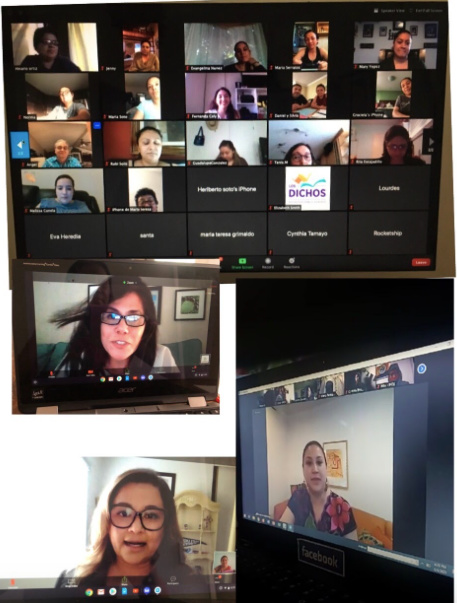As an involved parent, I’ve taken several training sessions that have equipped me with the tools to navigate my daughters’ education. Recently KIPP NorCal and the Foundation Hispanic Silicon Valley gave several parents (including myself) the opportunity to take classes with the Institute Parents for Better Quality of Education (PIQE). PIQE usually comes to our children’s school, but unfortunately due to the Covid-19 situation we took the classes via Zoom in May 2020. I’d like to share some of the things I learned that would be useful for parents who want their children to be better prepared for college.
1. AG Requirements: From 9th grade to 12th grade students are preparing to enter college and have to meet all AG requirements. It’s important as parents we are involved from kindergarten to high school to be ready. Some of the AG requirements are subjects such as: Math, English/Composition and Literature, Laboratory Science, Foreign Language, Visual and Elective Arts, etc.
2. School Involvement: What we can do as parents is attend parent/teacher conferences, participate in school activities, join the PTA, School Site Council, Cafecitos with your principal, community meetings, attend education trainings, meet our children’s counselors, and know what classes they are taking and what classes are missing. Create a plan based on your school’s resources, and dedicate some time to see it through.
3. Literature from Kindergarten: It’s important our children have the ability to read and have sufficient comprehension skills by the fourth grade. This is when the students who don’t will fall behind.
4. Requirements for the University: Students will need to complete the financial aid application, have a GPA (grade point average) above 3.0, be prepared for the ACT exams, SAT exams, and fulfill all requirements for AG courses. Your school’s academic counselor can provide more information on these tests and coursework.
5. Social and Emotional Learning: In addition to academics, it’s very important we support our children emotionally and ensure they have self-confidence and support from their teachers and family.
6. English Language Learners: The California English Language Proficiency Tests, known as ELPAC, are also very important. Students who identify as English Learners will take an annual test in the spring to see where they need help. The test assesses what kind of help the school can provide; after that they will take an assessment at the beginning of every school year until they are reclassified as being proficient in English. This allows them to take necessary courses required to go to college. The levels to reclassify are as follows:
- Beginners stage
- Little development
- Moderately
- Well developed (where we need our children to be)
How do you know what level your child is at? It’s easy to ask, and maybe it will be a good question during a conference with your teacher.
7. State Tests: There are also other tests in elementary school such as CAASPP (California Assessment of Students Performance and Progress). If you want to know your child’s progress, you can ask your school for your child’s cumulative file. There’s another test that’s done in the 11th grade called Smarter Balance (SBAC) and it includes language arts (ELA), math, and other tests. Parents should go to all school meetings and ask questions about how to prepare for these tests. In my case, KIPP and ROCKETSHIP notified us during cafecitos and community meetings. Your school should be doing the same.
8. Transcripts: A transcript is a document that shows what classes our children have taken (or are missing) and their GPA. This is also sent to the admissions office for the universities. If our children have the opportunity to take honors and AP classes, this will definitely help their college applications.
9. Community College: Attending a four year university does require completing all necessary steps and submitting applications. The requirements for private, and public universities are slightly different. Each one has a website to obtain more information and learn about the exact requirements and deadlines.
If students fall short from the requirements, feel they want to prepare a bit more, or want to avoid taking out student loans until absolutely necessary, community college is a great place to start right after high school! Community college offers significantly lower tuition, smaller classes, and strong student support. Once enrolled at a community college, make sure your child speaks to the counselors right away about setting up an academic plan to transfer to a four year college. Some community colleges have relationships with public universities that make transferring credits fairly straightforward.
Finally, we graduated from PIQE’s Level 1! I learned that as parents we have to know our children well enough to stay updated on their developing talents and abilities. I sincerely want to thank the Silicon Valley Hispanic Foundation, and Mr Ron González for sponsoring the PIQE program. Thanks to our teacher Fernanda Cely for all her patience and for making class time enjoyable. Thanks Liber Gonzalez for the text message reminders, and for always helping us with Zoom. Also, thanks to KIPP for partnering with the two organizations to deliver the class series and everyone for the beautiful graduation ceremony. We are ready for Level 2!

